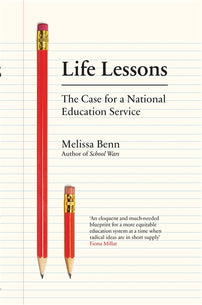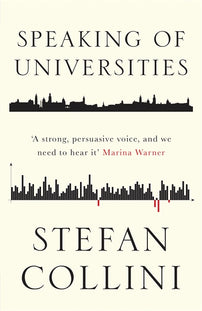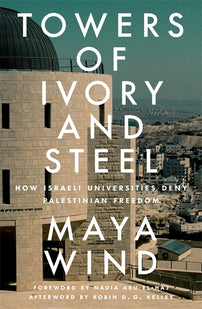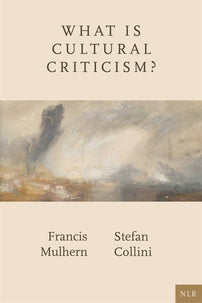A Goldsmiths Diary
The UK higher education sector is increasingly under threat. Here Angela McRobbie writes about the sweeping series of planned redundancies at Goldsmiths, University of London, and the wider assault on the sector.

These are desperate times in the UK higher education system. Every week there are closures of degrees or departments, and sizeable redundancies. Disproportionately it is the arts, humanities and social sciences that are affected, a consequence of their downgrading in recent years. The frequency with which common-sense opinion pieces in the tabloid press have questioned (and often ridiculed) the value of the liberal education prepares the ground for so many of these cuts. And this hostility has grown to a cacophony of voices, not just on the apparent lack of employability of graduates in these seemingly useless subjects, but also on the grounds of the embeddedness of an insistently critical disposition within this terrain, giving rise to accusations of enflaming so many ‘culture wars’. Particularly in the humanities, it is as if what once were rather hermetic domains have become too socially engaged. If Jane Austen will invariably be read to include the topic of empire, and if Flaubert will be subjected to Edward Said’s orientalist account, then there will be a backlash. Government does not hold back in expressing its preference for STEM subjects. All of this means that the arts and humanities become superfluous and disposable rather than an urgent part of the cultural life and wellbeing of the nation.
The most immediate and seemingly tangible rationale for these closures and reductions in provision is falling student numbers. But to focus on this is as if it was just a matter of student ‘choices’, market forces and the ebb and flow of fashionable and unfashionable subjects, is to obfuscate a series of interrelated factors that have made so many institutions and departments vulnerable to cuts. Turning to my own institution (where I am an active emeritus professor), there is a poignancy running through the words that follow. Quite independent of the intricacies of managerial decision making, Goldsmiths, University of London exemplifies all the admirable strengths and now the fragilities of the sector. It is not so much that Goldsmiths is such an exceptional case that it deserves singling out for special support (though that would be welcome). But rather, with a large number of compulsory redundancies announced in the last week alone, we not only need to pay critical attention with people’s livelihoods and family lives on the line, but we also need to take stock of what the future of higher education looks like in this increasingly bleak landscape. It is shocking news to us all, as the management are looking to lose 130 full-time equivalent positions across 11 departments. With so much at stake there must surely be other ways to secure financial stability. The reality is that Goldsmiths is a microcosm. It has always been something of an experiment in higher education (in the best possible sense) and now it stands to lose much of its identity and of the wider value it has delivered as an egalitarian institution dedicated to combining international research with a socially inclusive education.
When I arrived in 1998 many of the buildings were dilapidated. Many in the institution hoped for better things, but as long as the spaces were safe and clean we could get on with our jobs. And at a time when students were not borrowing substantial amounts of money and when parents were not so closely involved in the subject choices their children were making, this was (almost) part of the charm. Located in a poor neighbourhood of South London, there was a sense in which no one wanted an obtrusively flashy or flagship campus. We all, in different ways, connected with the surrounding area.
My arrival came towards the end of the YBA era, and the slightly crumbling spaces did not deter the art students from creating a loud noise. Empty spaces were commandeered, and in the much-loved Laurie Grove Baths building (a converted public swimming pool providing partitioned studio space) one would bump into Steve McQueen or Yinka Shonibare on a regular basis. The quite tasteless deep rose pinks and mauve painted walls, the occasional whiffs of damp cellar, were not so off-putting that the seminars lost their intensity. Students crowded in, and ended the day in the New Cross pubs at the foot of the road.
The location of the college itself, looking over the main trunk road that leads eventually to Dover, is by today’s standard a less attractive option, especially for parents reviewing their soon to be debt-laden children’s options. This despite the regeneration of Deptford, the fast train links to Shoreditch and the many improvements to the campus areas and the surrounding streets. During my two decades on faculty, there was always an upbeat and enthusiastic atmosphere. Many colleagues did valuable work in the local community. Without any aspiration to be a place of ‘luxury student accommodation’ (pools, flashy apartments with en suites etc) the local neighbourhood was somewhere we hoped to bring some benefits to in the form of employment and in our efforts to connect with the local schools. The irony here is that nowadays many Head Teachers equate success on the part of their students with getting into Oxbridge. This too has had a detrimental effect – as if a local university must be a kind of third choice, when in fact quite apart from excellence in teaching and research living near to home or indeed at home can be beneficial quite apart from saving on rent. The New Cross campus could not compete with what have become what the geographer Saskia Sassen refers to as the ‘urban glamour zones’, where universities are cosseted by upmarket real estate developments such as Granary Square at Kings Cross (home to Central Saint Martins) and Olympic Park (with the London College of Fashion and various satellite campuses). Nor even the Bloomsbury location of many of the colleges of the University of London, an area that needs little introduction to its architectural splendours. This all proved no disincentive throughout the early 2000s. At that point the full force of market competition had not yet kicked in. There was still an egalitarian imaginary across HE provisions, and as part of the University of London collegiate system, our Masters home students as well as those from all over the world were able to opt for additional classes at the LSE. Joint events and collaborations across the institutions meant that students would gladly turn up, whether it was at New Cross for a Stuart Hall talk, or LSE for a guest lecture by Judith Butler. We would also remind the students in advance that this kind of inter-collegiate provision was part of the academic offer. In fact, even now international students tell me they audit dozens of courses, soaking in that wealth of research perspectives and methodologies across so many disciplines while also getting their money’s worth of pedagogy. But inevitably, a more competitive spirit reduced this inter-collegiate sense of cooperation, when so much depended on hitting targets, and when these have being rising from one year to the next.
[book-strip index="1"]
Let me summarise the changes that have impacted so dramatically on what in the past, and slightly sniffily by other University of London colleagues, was referred to as the ‘poor college’ in South London. I must emphasise that these views are my own; they are entirely based on my observations and interactions with students, parents and others over the years. Nor are these comments specific to any subject area or department or school. I am referring across the distinctive arts, humanities and social science remit that has been a defining feature of the Goldsmiths college identity. The first point and in my mind the key factor that has been quite disastrous is Brexit. For decades there was great cooperation with students and visiting faculty from EU countries. We could rely on the modest income from large cohorts of EU students for whom our distinctive provision was simply not available across the still stuffy and more hierarchical (and patriarchal) universities in Spain, Italy, Netherlands and especially Germany. In many of these countries gaining access to a Masters degree was and remains highly competitive, with numbers capped and admission being dependent on either first class undergraduate degrees or top of the scale 2.1s. In the UK we have long been more aware of factors that can impede a student’s success, such as family illness, poverty, the experience of racism and so on. As a result there is more flexibility at the point of applications and enrolment. This proved a successful pipeline for EU students. I have worked with hundreds over the years, and I have monitored how they have been snapped up by major employers, whether that is the German newspapers or TV and radio stations, or European editions of glossy magazines, NGOs, think tanks, art galleries and museums, or even into various government offices. Not long ago myself and the previous Warden organised an alumni event for Goldsmiths graduates in Berlin, at the Bethanien gallery in Kreuzberg. The venue was packed out, and there was also a strong word of mouth sense that doing a Masters or an undergraduate degree in New Cross was both affordable and intellectually rewarding. Similarly many others from Italy and Spain have been able to complete doctorates and have gone on to take up academic posts often appointed to introduce these same subject areas where they did not exist before.
Economically this was a win-win situation. Even when fees for masters students rose, the home fees charged (rather than the hefty international fee rate now required ) meant that parents could be quite easily persuaded to fund a year of study in London especially since most of the undergraduate courses their children had already completed had been free, and living costs for students were still quite modest. A year of fees and accommodation in London could easily produce what in neoliberal parlance could be described as a good ROI (return on investment) for middle-class European parents. And for many without these resources it was possible to work while studying, and to share cheap accommodation, or even couch surf with friends, while using cheap coach travel to get back home once a month. The same was true for undergraduate students, many of whom had not got the coveted places in high-ranking European universities but who found the New Cross teaching and its wide-ranging curriculum and choice of courses and inter-disciplinary swirl exciting.
The UK provided an alternative and successful route into high quality HE. But all of this disappeared in a puff of smoke when the shutters came down and Brexit removed at a stroke these annual cohorts of young people. I have fond memories of teaching Italian LGBTQ students (still fearful of parental disapproval) or Portuguese punks, or young Polish women keen to get a foothold in the art world. A lot was expected of them, for Masters it meant in several 5000 word essays and 12 000 word dissertations stretching to almost 45,000 words in one year and with English as a second language. I was constantly impressed, teaching these students was an amazing experience real workplace enhancement. When this kind of cohort disappeared almost overnight, it was a huge loss one felt across the college. It was something that could not be solved or turned around in a short space of time, as government might have hoped. There was inevitably going to be a financial deficit.
The second point relates to international students who also made similar contributions to our student body. The fees were always higher for them, but the same labour marker pipeline prevailed. Many of our students were already working professionals and often their employers would cover fees and living costs for the year of refreshing and updating. This cohort included leading journalists from Japan and Korea, as well as those from India and Pakistan, Thailand and Indonesia. These too declined in number with rising fees and the recent government discouraging students from being accompanied by close family, spouses and children. There are fewer work-sponsored students now, and without this finance package the kind of equations needed to fund a year in London with its now exorbitant rents means that only those with wealthy parents or a private income can consider the option. International students with children have the almost nightmarish issue of finding affordable accommodation as well as school places and after school care. For middle income overseas students, other options become more attractive.
[book-strip index="2"]
Other factors also have accounted for our current crisis. Parents play a much bigger role in their children’s higher education options than was the case in the past, and it is not just questions about labour market value but also about location and facilities. They are often happier to see offers of unconditional places from green site campuses, or cities that are cheaper to live in, which in turn means less pressure on the student to combine study with paid casual jobs. The marketisation of the university system has pitted one college against the other, and the removal of caps on undergraduate student numbers from what are now routinely referred to as ‘top universities’ means that more status- conscious students will be attracted by such offers for the CV enhancement. It used to be enough to have been active in the student union or to have been someone who as a student organised for the various societies to spark the interest of future employers. Now the criteria is bare bones: Russell Group, degree class (1st or upper 2.1.) and a relevant internship. This scenario rewards students from uncomplicated middle-class and stable environments. The emphasis on Russell Group universities has impacted negatively on students, especially from local or less prestigious new universities. In the past such distinctions were much less important; students and faculty alike would move easily across from one kind of institution to the other. More pernicious again has been the branding of universities according to the audit culture and the removal of caps which means that vast numbers flock to the so-called top-rated institutions leaving the rest to experience this current crisis in recruitment. The older model was more equitable with students evenly distributed and with much less polarisation in the sector. What would it mean to reverse this situation and re-instate a capping of numbers?
For the last decade, we have all had to grapple with these seemingly intractable obstacles. In the ‘poorer colleges’ we have make great effort to connect with local schools and FE institutions, we deliver guest lectures to A Level students who visit the campus, we are active in all the professional associations and societies that promote areas such as the public humanities, public art and public sociology. This is all on top of the normal working week, the teaching time and preparation, the ongoing research, the writing of grant applications, the additional pastoral duties that relate to student needs. In the course of this we know that dips in recruitment can be temporary, and that closure of courses can be premature and hastily reached decisions, that are then hard to reverse.
There is something seemingly irrefutable about falling enrolments as if it’s just a matter of customer choice, which in turn reflects the logic of what’s come to be known as the neoliberal university. But it is the political factors such as Brexit and the fee regime and the highly competitive environment with the stress on luxury student accommodation and glittering campus facilities that really accounts for the difficulties we are facing. With low or no fees, undergraduates felt freer to pursue their own dreams of being taught by the kinds of leading scholars and world-renowned artists found in an institution like my own. They could afford to take the time to find their own feet, to chop and change courses and module options. Many would tell me they had discovered for the first time the wonders of anthropology, not having had any idea of the field previously. The spirit of intellectual inquiry could result in the most interesting range of module clusters, all now foreshortened by projected reductions in provision. More than this, institutions like my own that have trained up global academics as well as professionals now working in high level occupations across the world do not deserve to be penalised in this short-term way. We need to be able to preserve the richness and the vitality. There has to be other ways of saving courses and faculty.
With a potential change of government on the horizon, institutions like Goldsmiths need to be given time before having to embark on major cuts to provision. A new government could be lobbied to provide interim funding for precarious but highly considered small universities, with a set schedule for balancing the books, and with a new set of strategies for the changed demographics. A financial arrangement for higher education could see a return of EU students alongside flows of international students in a way that does not just favour the international wealthy classes. Specialist colleges could easily be encouraged to share some provisions with those currently positioned as competitors. The market system which pitches one institution against another has been counter-productive, awarding only the powerful and conventionally high-ranking ‘choices’ rather than those universities which have developed much more egalitarian policies for attracting disadvantaged young and more mature students. Many times have I wanted to have a conversation with Croydon born Grime star Stormzy about why he only awards special studentships to allow young black people to attend Cambridge colleges – why not make these more regionally dispersed?
It is also imperative to retain the features that make these smaller institutions unique and special. Among the neighbouring London colleges, SOAS has its way of creating and sustaining a fine portfolio of global scholars known throughout the world as a flagship of post-colonial excellence. Birkbeck has been the night school for the post-war generation, where it was possible to be taught by no less than Eric Hobsbawm. Goldsmiths had Richard Hoggart himself as Warden, and we named the main building in his honour in 2004. Catherine Hall, the eminent historian of slavery and widow of Stuart Hall, also unveiled a plaque and new building named after her late husband.
One of my own most precious moments occurred in a lowkey way just five years ago. It relates to the work and influence of one of the great philosophers and thinkers of the 20th century, Walter Benjamin. It was a post-graduate sponsored event, set up by a group across three institutions but arranged for a cold November evening at Goldsmiths. I could hardly believe the online announcement and poster that flitted across my computer screen, it said that the granddaughter of Benjamin would be giving a talk and showing a film made about her life in Berlin and in honour of the famous writing by Benjamin titled A Berlin Childhood. Chantal Benjamin, an unassuming and warm woman, spoke to those 40 or so of us gathered, as did her amazingly eloquent 13 year old daughter. I was relieved for the darkness during the screening because tears were running down my face. Maybe they were also in gratitude that somehow with all the stumbles that academic women of my own generation made on the way I had managed to arrive and to end up in the right place.
The idea of making so many people redundant given the prevailing raises not just political but also ethical questions. People have mortgages to pay, children and others to look after. The academic career involves so many hurdles, such long hours of PhD writing, as well as so many part-time teaching posts all before reaching the goal of a permanent position. In my own career stretching over nearly 50 years I recall rounds of announced job cuts that were prevented at the last moment by various means. In one case Kings College brought in a whole small department under some sort of transfer agreement to build up an area it was weak in. In another case it was a matter of buying time for ‘natural wastage’. Even moves to fractional appointments with resulting reductions in pay would be preferable. In another institution, redeployment also took place. All parties were given a timeline to recover the loss of students numbers and as I recall there was a good outcome. If the university sector, in particular those institutions outside the Russell Group, is plunged into crisis as a result of so many variables a grander plan than what already exists is urgently needed to stabilise and re-configure the provision. We must learn from Scotland, which though not problem free has found a way of working without the fee regime. It may be possible to form shared subject areas across two or three neighbouring institutions, but most of all it is time to remove the vocabulary of the market place, the student as customer and the ethos of competition in what needs to be re-framed as a public good. The post-war period saw the growth of a world-leading sector that relied on government investment through public funding. The free-market model of recent years has little to offer: there are few visible benefits; and the ‘return on investment’ university is out of sync with the egalitarian spirit that has underpinned the idea of higher education in the UK, and that has been a source of national pride. The decimation of the humanities and social sciences is an affront to educational common-sense, any idea of social cohesion, needs these subject areas to be at the heart of education and everyday life.
[book-strip index="1"]
[book-strip index="2"]



